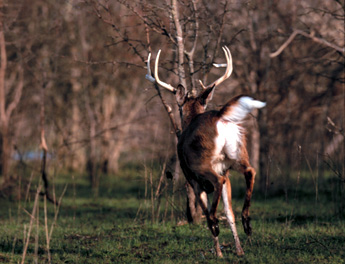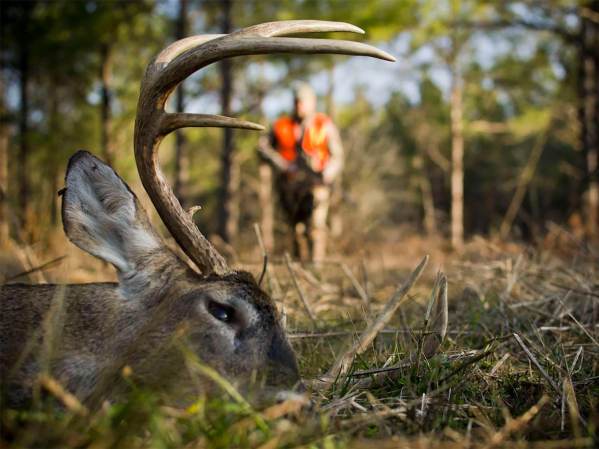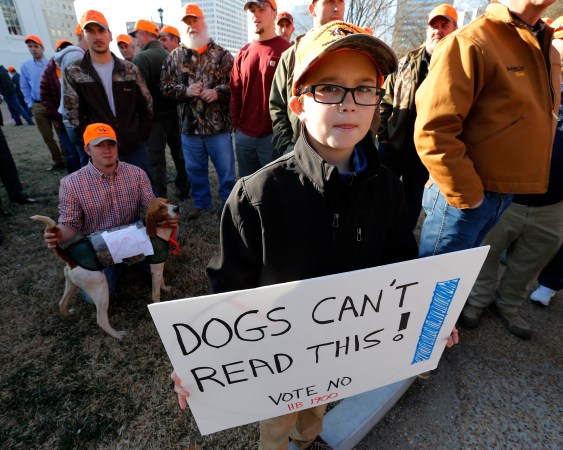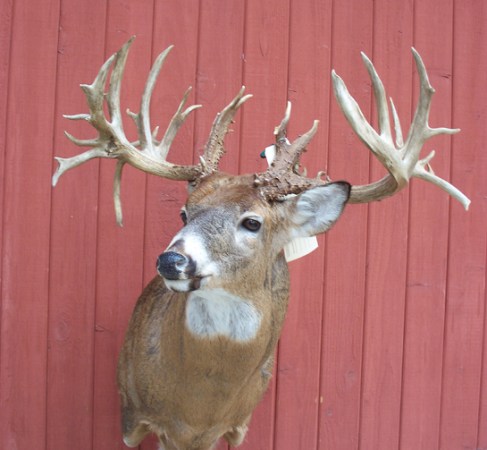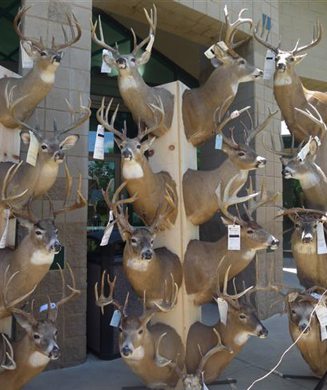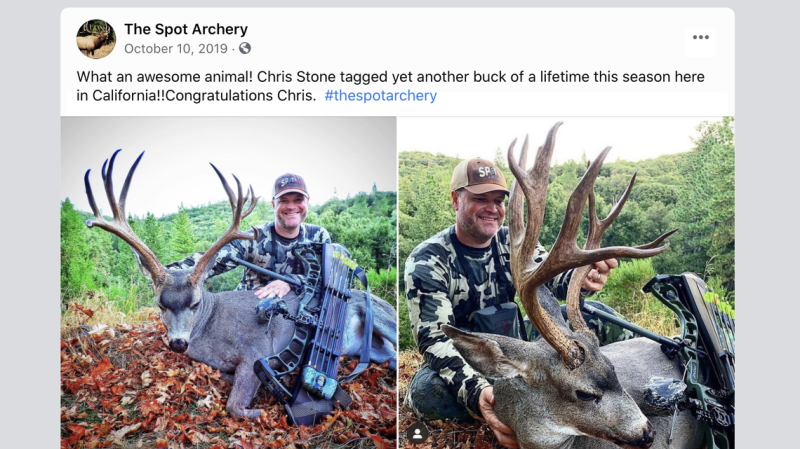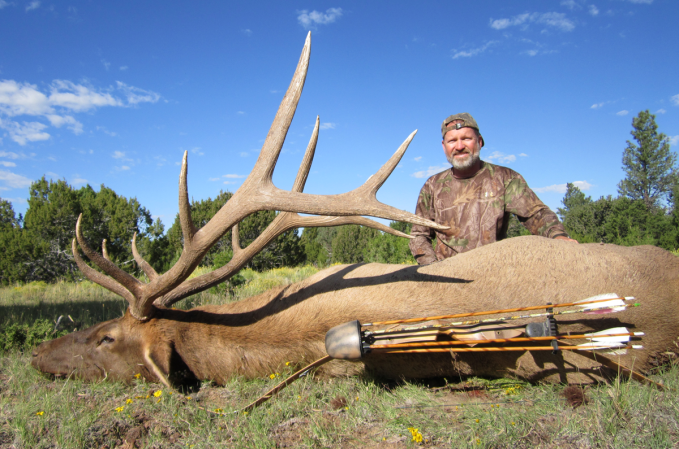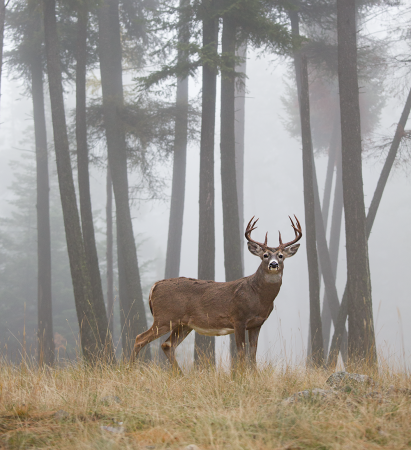Jim Kropp knows how quickly the situation can get ugly when a hunter crosses that not-always-clear line and becomes a trespasser. Kropp is head of enforcement for Montana Fish, Wildlife and Parks, and his officers are sometimes called on to step between an irate landowner and a trespasser armed with a hunting rifle.
Often it’s a hunter who has made an honest mistake, Kropp says. In other instances the trespasser is a poacher who intentionally slipped through a fence to bag a trophy elk or deer.
“Most of the time, things end without confrontation,” Kropp says. “For everyone involved, the situation isn’t worth someone getting hurt over, and that includes the game warden, the landowner and the sportsman.” Despite their best efforts to fight it, wildlife officials say trespassing remains the number-one landowner complaint against hunters. Trespassing was also the catalyst for the most shocking crime committed in the woods last year.
Tragedy in the Midwest
During wisconsin’s firearms deer season, hunter Chai Soua Vang wandered onto private property and was confronted by its hunter owners, who had posted the land. When an angry encounter ensued, Vang opened fire with an SKS semi-automatic rifle, killing six people and wounding two. Victim accounts along with evidence indicate that Vang pursued his victims, running them down and shooting as many as four of them in the back as they attempted to flee.
Vang, a member of the Hmong community that immigrated to the U.S. from Laos, claims he was shot at first and subjected to racial slurs; attack survivors Lauren Heseback and Terry Willers, who have made few public statements since being released from the hospital following the shootings, claim no one yelled racial slurs and that they simply demanded that Vang leave the property.
The mass slaying sent shock waves through northern Wisconsin and the nation’s hunting community. In news interviews following the shootings, some Wisconsin hunters even expressed concern about returning to the woods that season, while the racial aspect of the confrontation served to heighten tensions between the Hmong community and Wisconsin’s largely white population of hunters. Meanwhile, the city of Rice Lake, where the victims lived, plans to build a Hunters Memorial Park.
While the Wisconsin slayings represent an extreme outcome in trespassing conflicts, they have brought the issue into sharper focus. Some wildlife agencies reported a rise in calls after the shooting, with hunters and landowners increasingly worried about trespassers and what to do should they encounter one.
[pagebreak] Roots of the Problem
Some officials point to two primary concerns: First, growing urban populations and shifting rural land ownership are making hunting access more difficult and complicated.
Second, a small number of hunters simply refuse to obey trespassing rules, a move that makes all hunters look bad in the nonhunting public’s eyes.
“We get trespass complaints across the board, whether it’s in rural areas or your typical suburban areas,” says Jerry Feaser, spokesman for the Pennsylvania Game Commission. “There are some hunters who continue to hurt the image of hunting by showing absolute disregard for landowners. Fortunately, they tend to be the exception rather than the rule.”
The good news is that trespassing complaints against hunters don’t appear to be rising in Pennsylvania. Greg Houghton, assistant director for the commission’s bureau of law enforcement, says complaints are actually relatively few, given that the state has 1.1 million licensed hunters.
Not surprisingly, though, the complaints spike during deer season, when orange-clad hunters are numerous and visible. When a complaint is made, the call is routed to local police because the Pennsylvania Game Commission doesn’t enforce hunting or fishing espass laws. Several proposed state bills, including one in the legislature this year, have sought to change that.
“It would be a terrible burden on our law enforcement officers,” Houghton says. “Even during the hunting season, if we had to respond to every call, it would be all we would do.”
In Ohio, citations for hunting and fishing without permission have dropped by half since 1997, a trend that has most likely been influenced by stiffer hunting and fishing trespass penalties enacted in 1999.
“We treat trespassing as a priority,” says Kevin O’Dell, assistant law enforcement administrator for the Ohio Division of Wildlife. “We want to make sure we keep landowners happy in order to keep lands open for hunting.” Still, says O’Dell, “We have slob hunters who are ruining it for all the sportsmen who follow the law.”
[pagebreak] Trouble in Montana
Trespassing is a hot topic in Montana, where relations between ranchers and hunters have become increasingly strained. Ranchers cite trespassing as one of their major hunter complaints. Meanwhile, hunters are feeling the access pinch. Sportsmen say that when ranches are purchased the new owners often prohibit hunting or sharply limit access. Hunting leases, particularly by commercial operations, are also closing lands once available to the average hunter, authorities say.
Montana’s trespass rules are similar to those in most states: You need landowner permission before entering. But Montana doesn’t require landowners to post their land, and boundaries between huge tracts of private and public property are often unclear.
“One of our greatest problems is the lack of boundaries,” says Craig Sharpe, executive director of the Montana Wildlife Federation. He says it’s not as though a lot of people are intentionally wandering onto the wrong properties and getting ticketed. “But it is increasingly an issue for sportsmen, who feel they practically have to carry a GPS with them to stay legal,” he says.
In a vast state that is undergoing dramatic shifts in land ownership and in which “hired guns” often patrol private ranches, Kropp acknowledges that the lack of boundary signs is a problem for sportsmen who might unintentionally trespass. “I know there’s a good share of landowners, though, who can see the difference between an accidental trespass situation and an intentional violation of the law,” he says.
Kropp also realizes that Montana has problem trespassers. His agency keeps a list of Montana’s 80 top chronic hunting trespassers, and a state law proposed this year would stiffen penalties and revoke licenses for second- and third-time offenders.
Wildlife agency officials say hunters ultimately bear the responsibility of knowing where they are in the woods. They also need to make sure that they follow the time-honored tradition of seeking permission before crossing a fence, a message hammered home in hunter-safety classes across the land.
“It’s the code of the woods,” says Jim Bishop, a Wisconsin Department of Natural Resources spokesman. “It’s taught in hunter-safety classes, and parents pass it down to young hunters. There are probably a lot more cordial and hospitable encounters between hunters and landowners than not.”
The Wisconsin shooting continues to reverberate throughout the country. Some landowners say they’ll be much more cautious when approaching trespassers or maybe even avoid them altogether and simply call the local authorities; others hope the incident serves as a cautionary tale about the greater problem of trespassing.
“I would hope the silver lining in this horrific situation is that hunters take a step back and evaluate how they treat landowners,” Feaser says. “It’s not an across-the-board situation. We’re talking about a small percentage of hunters who aren’t treating landowners with the degree of respect they deserve.”
[pagebreak] **Dealing With Trespassers **
Wildlife law enforcement officials offer this advice to landowners and hunters who encounter a trespasser on their property or hunt lease.
Avoid Confrontation Stay calm and don’t confront the trespasser unless it is absolutely necessary. If you do have to deal with the person face-to-face, don’t say or do anything to escalate the situation.
When possible, it’s better to keep your distance and get as much information as you can, such as a physical description, what the person is wearing, the direction in which he’s walking and what exactly he’s doing. Pay particular attention to distinguishing features, such as tattoos, patches or a visible license number worn on the back in some states. Even if you think you’re right, it’s not worth it to force the situation in the field.
Call Law Enforcement Find out whether it’s the state wildlife agency or the local sheriff’s department that enforces hunting and fishing trespass complaints. That way, you can call the proper agency, saving valuable time in getting the right person to respond.
If the trespasser is poaching or violating other wildlife laws, contact wildlife enforcement officials and provide them with as many details as possible.
Write down license numbers Be sure to write down license plate numbers, VIN numbers, boat registration numbers or any other distinguishing detail that will offer positive identification for vehicles, including ATVs, that you suspect belong to the trespasser.
Don’t delay If you report a trespasser days or weeks after the incident, chances are slim that the person will be caught and prosecuted.
[pagebreak] On the Trail of Wounded Game
It’s a common dilemma. You shoot and wound a game animal and it ends up on private property that adjoins your hunting land. What do you do?
**seek permission ** Wildlife officers from five states unequivocally answer the same: Always seek permission from the landowner before pursuing wounded game across private property.
**get law enforcement involved ** “You’ll need to get permission from that person,” says Kevin O’Dell, assistant head of enforcement for the Ohio Division of Wildlife. “If the landowner is uncooperative or unavailable, call a local game warden for help.”
In most cases, the landowner will grant permission and maybe even assist you. But the situation gets tricky if an animal ends up on the property of an animal-rights advocate or someone otherwise hostile toward hunters. O’Dell faced that situation once. He asserted his right to enter the property and retrieved the deer for the hunter. “The landowner was not entitled to the deer,” he says.
**be a good neighbor ** A simple way to avoid confrontation is to they deserve.”
[pagebreak] **Dealing With Trespassers **
Wildlife law enforcement officials offer this advice to landowners and hunters who encounter a trespasser on their property or hunt lease.
Avoid Confrontation Stay calm and don’t confront the trespasser unless it is absolutely necessary. If you do have to deal with the person face-to-face, don’t say or do anything to escalate the situation.
When possible, it’s better to keep your distance and get as much information as you can, such as a physical description, what the person is wearing, the direction in which he’s walking and what exactly he’s doing. Pay particular attention to distinguishing features, such as tattoos, patches or a visible license number worn on the back in some states. Even if you think you’re right, it’s not worth it to force the situation in the field.
Call Law Enforcement Find out whether it’s the state wildlife agency or the local sheriff’s department that enforces hunting and fishing trespass complaints. That way, you can call the proper agency, saving valuable time in getting the right person to respond.
If the trespasser is poaching or violating other wildlife laws, contact wildlife enforcement officials and provide them with as many details as possible.
Write down license numbers Be sure to write down license plate numbers, VIN numbers, boat registration numbers or any other distinguishing detail that will offer positive identification for vehicles, including ATVs, that you suspect belong to the trespasser.
Don’t delay If you report a trespasser days or weeks after the incident, chances are slim that the person will be caught and prosecuted.
[pagebreak] On the Trail of Wounded Game
It’s a common dilemma. You shoot and wound a game animal and it ends up on private property that adjoins your hunting land. What do you do?
**seek permission ** Wildlife officers from five states unequivocally answer the same: Always seek permission from the landowner before pursuing wounded game across private property.
**get law enforcement involved ** “You’ll need to get permission from that person,” says Kevin O’Dell, assistant head of enforcement for the Ohio Division of Wildlife. “If the landowner is uncooperative or unavailable, call a local game warden for help.”
In most cases, the landowner will grant permission and maybe even assist you. But the situation gets tricky if an animal ends up on the property of an animal-rights advocate or someone otherwise hostile toward hunters. O’Dell faced that situation once. He asserted his right to enter the property and retrieved the deer for the hunter. “The landowner was not entitled to the deer,” he says.
**be a good neighbor ** A simple way to avoid confrontation is to
